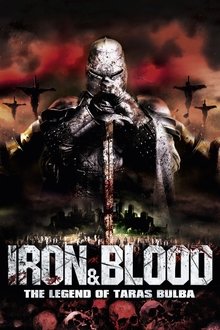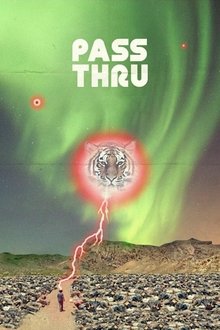Set between the two World Wars and based on true historical events, Bitter Harvest conveys the untold story of the Holodomor, the genocidal famine engineered by the tyrant Joseph Stalin. The film displays a powerful tale of love, honour, rebellion and survival at a time when Ukraine was forced to adjust to the horrifying territorial ambitions of the burgeoning Soviet Union.
Related Movies
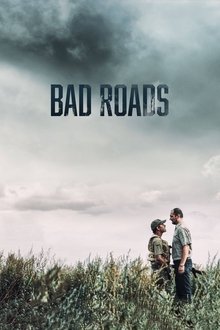
Bad Roads (2021)
Four short stories are set along the roads of Donbass during the war. There are no safe spaces and no one can make sense of just what is going on. Even as they are trapped in the chaos, some manage to wield authority over others. But in this world, where tomorrow may never come, not everyone is defenseless and miserable. Even the most innocent victims may have their turn at taking charge.

Irish and Proud of It (1936)
An Irish-born businessman based in London is kidnapped by colleagues as a joke and flown back to the small village of his birth. There he finds that American gangsters are forcing the local publicans to buy illegally-produced raw spirit with which to adulterate branded products.

Sirens (1994)
In 1930s Australia, Anglican clergyman Anthony Campion and his prim wife, Estella, are asked to visit noted painter Norman Lindsay, whose planned contribution to an international art exhibit is considered blasphemous. While Campion and Lindsay debate, Estella finds herself drawn to the three beautiful models sitting for the painter's current work, freethinking Sheela, sensual Pru and virginal Giddy.

Me and Orson Welles (2008)
New York, 1937. A teenager hired to star in Orson Welles' production of Julius Caesar becomes attracted to a career-driven production assistant.

Being Julia (2004)
Julia Lambert is a true diva: beautiful, talented, weathly and famous. She has it all - including a devoted husband who has mastermined her brilliant career - but after years of shining in the spotlight she begins to suffer from a severe case of boredom and longs for something new and exciting to put the twinkle back in her eye. Julia finds exactly what she's looking for in a handsome young American fan, but it isn't long before the novelty fling adds a few more sparks than she was hoping for. Fortuately for her, this surprise twist in the plot will thrust her back into the greatest role of her life.
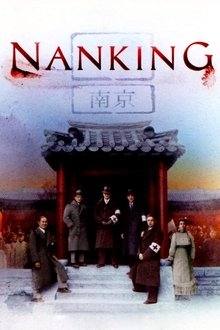
Nanking (2007)
The story of the rape of Nanking, one of the most tragic events in history. In 1937, the invading Japanese army murdered over 200,000 and raped tens of thousands of Chinese. In the midst of this horror, a small group of Western expatriates banded together to save 250,000. Nanking shows the tremendous impact individuals can make on the course of history.

Stan & Ollie (2018)
With their golden era long behind them, comedy duo Stan Laurel and Oliver Hardy embark on a variety hall tour of Britain and Ireland. Despite the pressures of a hectic schedule, and with the support of their wives Lucille and Ida – a formidable double act in their own right – the pair's love of performing, as well as for each other, endures as they secure their place in the hearts of their adoring public
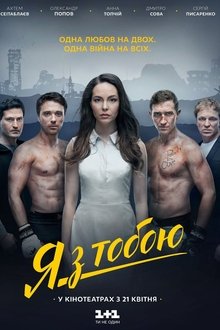
I'm with You (2016)
Two fellow athletes fall in love with the same girl. They try to get money for her treatment for cancer.

Henry & June (1990)
While traveling in Paris, author Henry Miller and his wife, June, meet Anais Nin, and sexual sparks fly as Nin starts an affair with the openly bisexual June. When June is forced to return to the U.S., she gives Nin her blessing to sleep with her husband. Then, when June returns to France, an unexpected, and sometimes contentious, threesome forms.
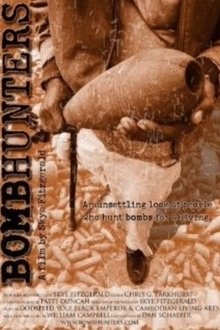
Bomb Hunters (2006)
Bomb Hunters is an engrossing examination of the micro-economy that has emerged in Cambodia from untrained civilians harvesting unexploded bombs as scrap metal. The film explores the long-term consequences of war and genocide in an attempt to understand the social, cultural, and historical context and experiences of rural villagers who seek out and dismantle UXO (unexploded ordnance) for profit. Part of a global economy, these individuals clear UXO from their land in order to protect their families from harm and to earn enough money to survive. Bomb Hunters is an eye-opening account investigating the on-going residual, persistent effects of war experienced by post-conflict nations around the globe, and the complex realities of achieving "peace".
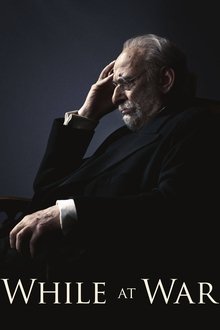
While at War (2019)
Salamanca, Spain, 1936. In the early days of the military rebellion that began the Spanish Civil War (1936-39), writer Miguel de Unamuno supports the uprising in the hope that the prevailing political chaos will end. But when the confrontation becomes bloody, Unamuno must question his initial position.

Mariana's Room (2025)
In the darkest days of the Second World War, Yulia and Hugo, a Jewish mother and son, escape from a Ukrainian ghetto. Fearing for his safety, Yulia entrusts her boy to the care of her friend Mariana, a sex worker who lives in a brothel. Hugo is placed in a closet, nominally for his safety, but from which he rarely leaves. With little view of the outside world, he conjures up ghosts and scenarios. But over time, Mariana brings the boy out and in doing so transforms his life.

The Green Notebook (1949)
Businessman Karel Bočan is a swindler who writes down the debts of his victims in a green notebook. He is stopped by an observant boy who reveals the fraudster and dealer in stolen goods in it.
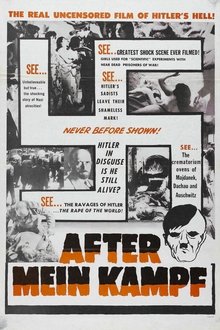
After Mein Kampf? (1961)
By combining actual footage with reenactments, this film offers both a documentary and fictional account of the life of Adolf Hitler, from his childhood in Vienna, through the rise of the Third Reich, to his final act of suicide in the waning days of WWII. The film also provides considerable, and often shocking, detail of the atrocities enacted by the Nazi regime under Hitler's command.
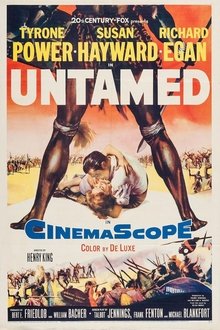
Untamed (1955)
When the great potato famine hits Ireland, the diaspora begins as thousands emigrate. Among those leaving the Emerald Isle is Katie O'Neill and her husband, who decide that the promised land is South Africa and make their way there. Once there, they discover the hardships that are the reality of the homesteader experience.
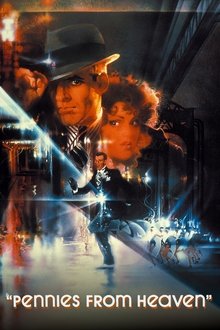
Pennies from Heaven (1981)
During the Great Depression, a sheet music salesman seeks to escape his dreary life through popular music and a love affair with an innocent school teacher.
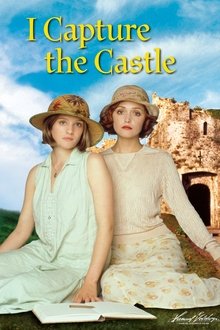
I Capture the Castle (2003)
In 1930s England, 17-year-old Cassandra Mortmain and her eccentric family struggle to survive in a decaying English castle.

